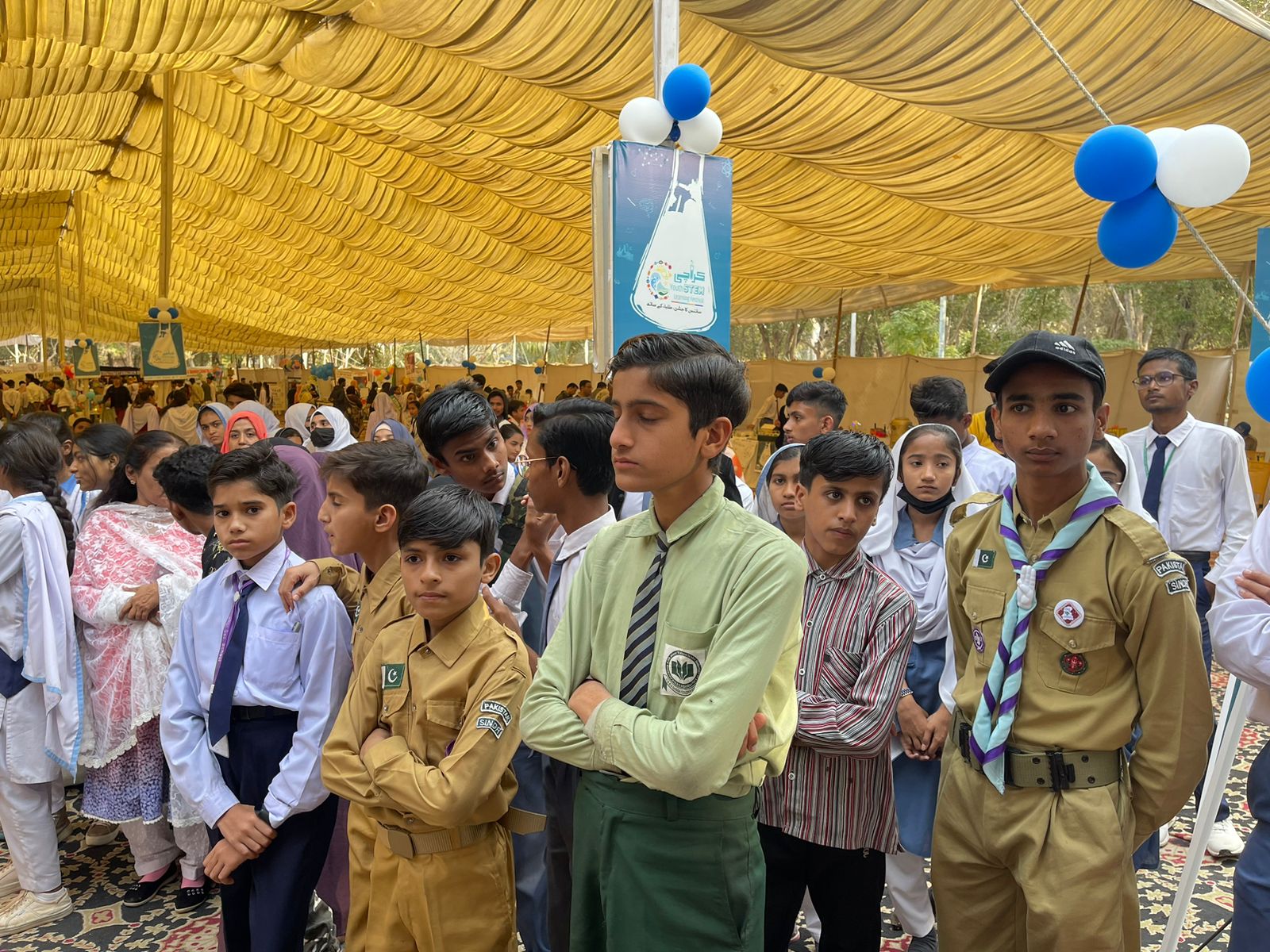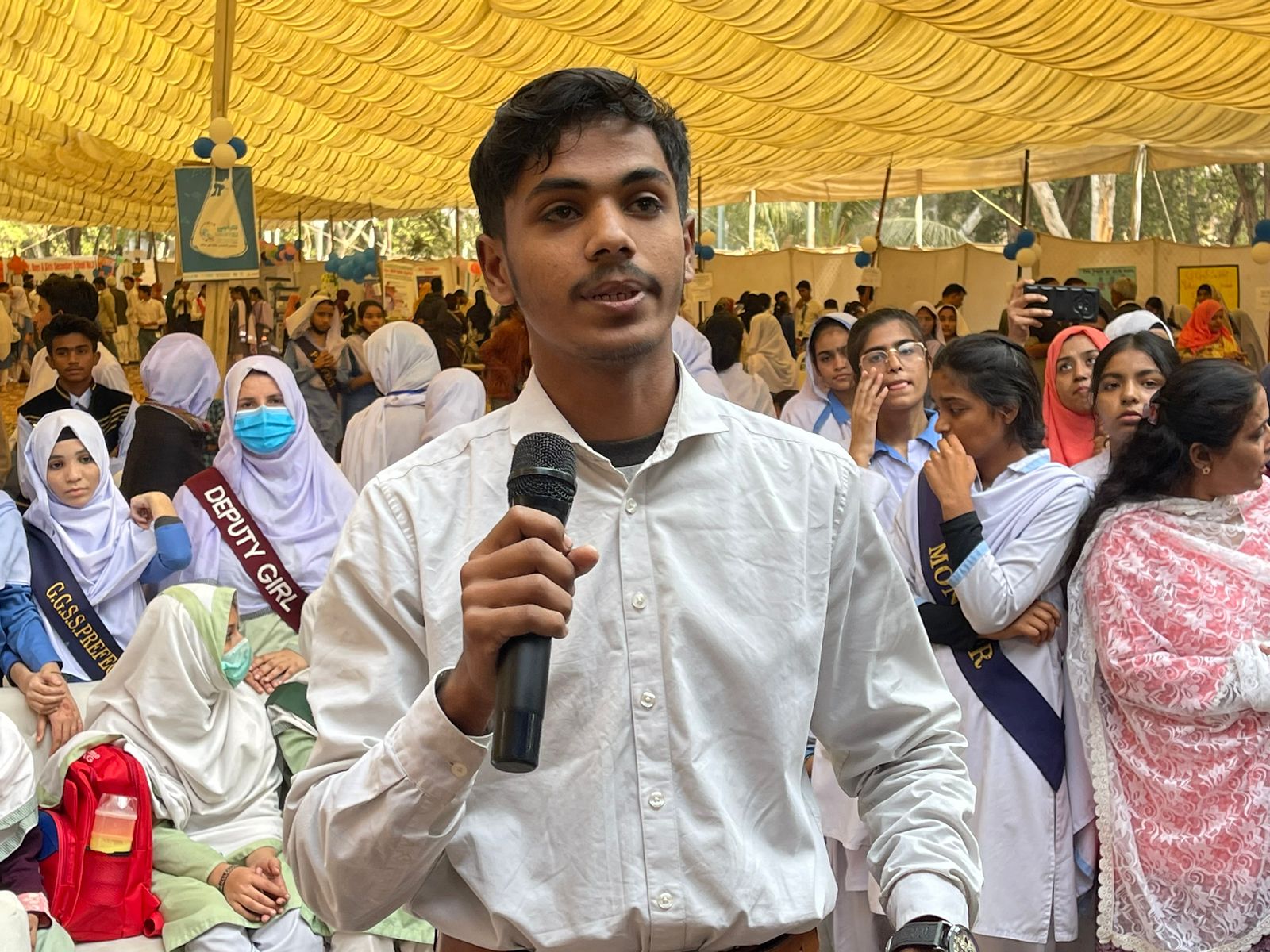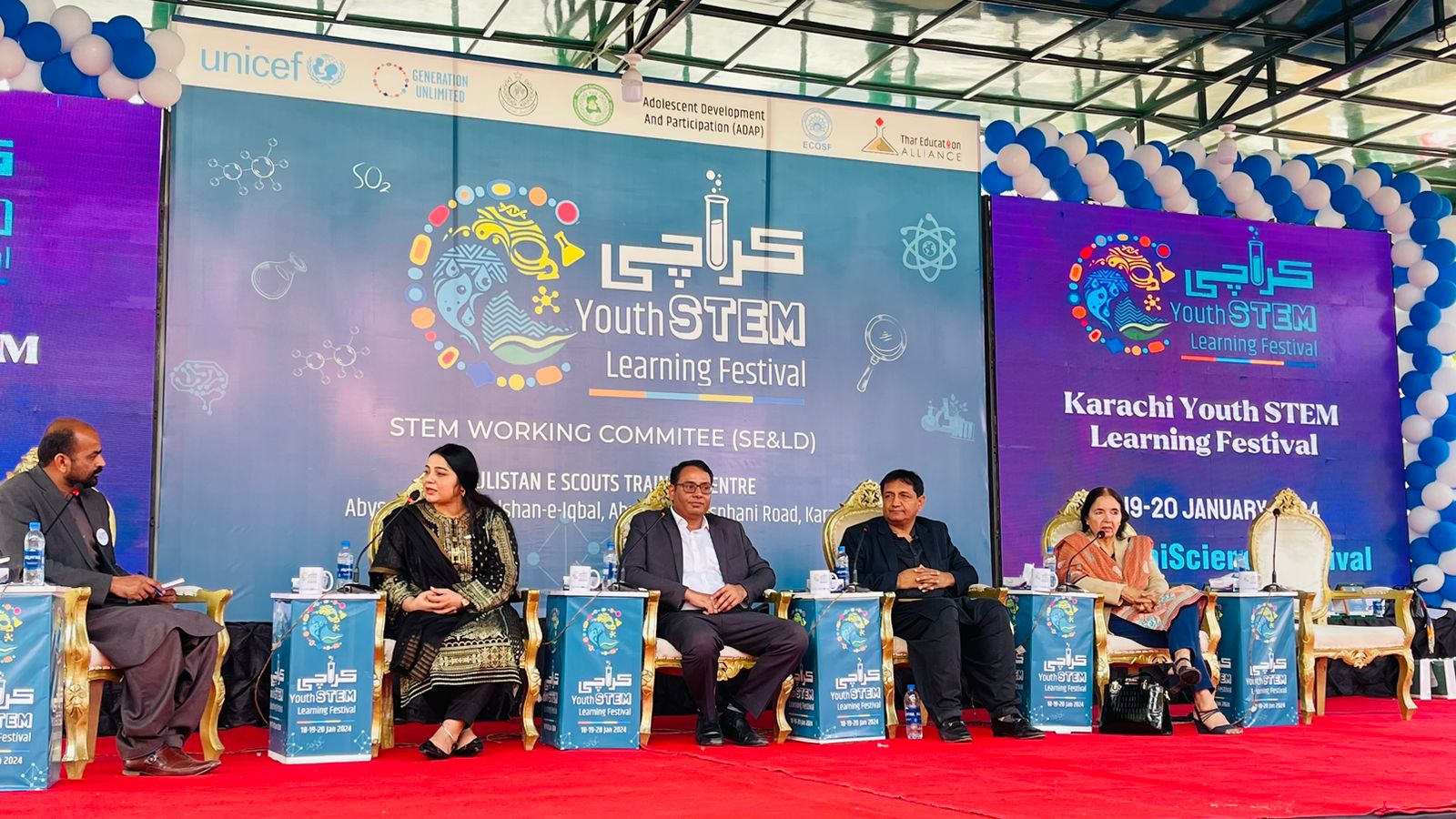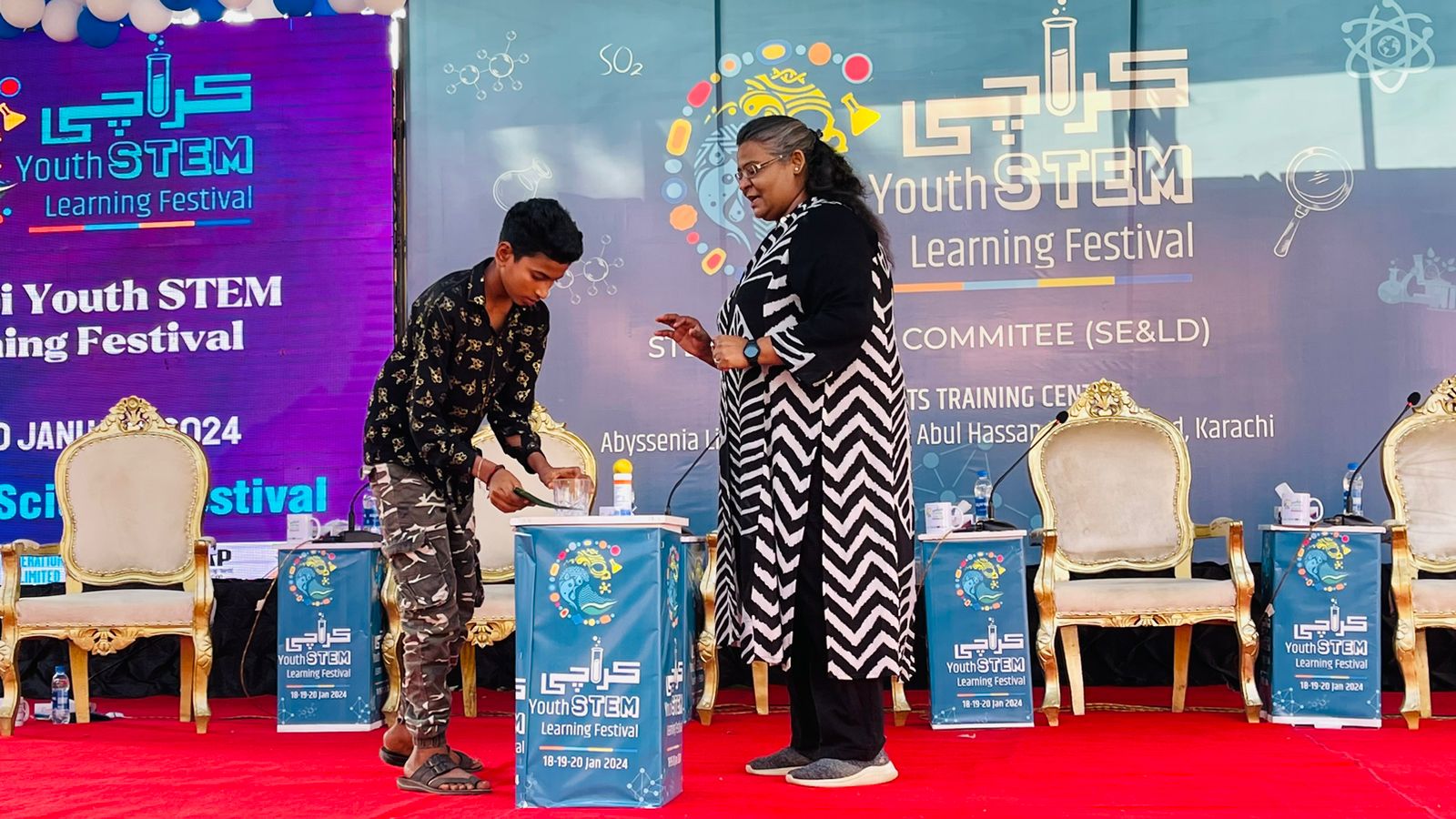Lack of Attention to Education in Emergencies Raises Alarms
Sanjay Mathrani
Karachi: Despite being a matter of global concern, the subject of education in emergencies had not received sufficient attention from both governments and the general public, said Jawad Mirani, the moderator for the sessions at Karachi Youth STEM Learning Festival.
Mirani stressed the importance of giving serious consideration to this pressing issue. According to the details, speakers across various sessions also emphasised the crucial need to update the Sindh education policy. The discussions on topics such as Education in Emergencies, Quality Enhancement, and investment in STEM Education were marked by strong support for addressing this issue.
The discussions on topics such as Education in Emergencies, Quality Enhancement, and investment in STEM Education were marked by strong support for addressing this issue.
Jawad Mirani, the moderator for the sessions, pointed out that, despite being a matter of global concern, the subject of education in emergencies had not received sufficient attention from both governments and the general public. Mirani stressed the importance of giving serious consideration to this pressing issue.  Pirbhu Satyani, a panellist, highlighted the alarming disruptions caused by emergency situations in education. He noted that the state of infrastructure was critical, with buildings on the brink of collapse, yet the severity of the issue was not being adequately acknowledged. Satyani expressed concerns about the potential for natural disasters, emphasising that children in schools do not feel safe.
Pirbhu Satyani, a panellist, highlighted the alarming disruptions caused by emergency situations in education. He noted that the state of infrastructure was critical, with buildings on the brink of collapse, yet the severity of the issue was not being adequately acknowledged. Satyani expressed concerns about the potential for natural disasters, emphasising that children in schools do not feel safe.
Regarding the 2010 flood, Satyani highlighted that despite some organisations initiating school safety programmes at that time, there has been little improvement. He emphasised that children from vulnerable and marginalised communities still face the brunt of these challenges.  Educationist Partab Rai Shivani expressed concern about the lack of a comprehensive plan, stating that appeals are relied upon instead of having a structured policy. This gap is particularly evident in the absence of a Sindh Education Policy after the 18th Amendment, which made education a provincial matter.
Educationist Partab Rai Shivani expressed concern about the lack of a comprehensive plan, stating that appeals are relied upon instead of having a structured policy. This gap is particularly evident in the absence of a Sindh Education Policy after the 18th Amendment, which made education a provincial matter.
Shivani said the absence of sustainability plans for short-term projects and the mismatch between the number of teachers (60,000) and the shortage of teaching staff in many schools. He also pointed out the demand for skills, with 76 percent catering to boys’ schools despite efforts to promote girls’ education.
In Tharparkar, Shivani discussed their approach, starting with in-school children before focusing on out-of-school children. Initiatives such as SAT tests and a science festival in Mithi have aimed to tap into the abundant talent in Thar, making education a focal point for positive change. Sadiqa Salahudin highlighted the challenges posed by climate disasters to the continuity of schooling, citing the significant impacts during the floods of 2010 and 2022. Despite these hardships, there is a commitment to strengthening interest in education in such situations.
Sadiqa Salahudin highlighted the challenges posed by climate disasters to the continuity of schooling, citing the significant impacts during the floods of 2010 and 2022. Despite these hardships, there is a commitment to strengthening interest in education in such situations.
During a panel discussion on Alternative Pathways for Out-of-School Children, experts emphasised the need to introduce digital learning in schools, promote digital literacy, facilitate access to libraries and information, and leverage digital tactics to broaden children’s exposure.
In a discussion on ‘Preparing Super Women: Gender Gap in STEM Education,’ transgender rights activist Shahzadi Rai stressed the importance of inclusivity, emphasising the need to discuss the transgender community in the context of the gender gap in STEM.

Comments are closed.